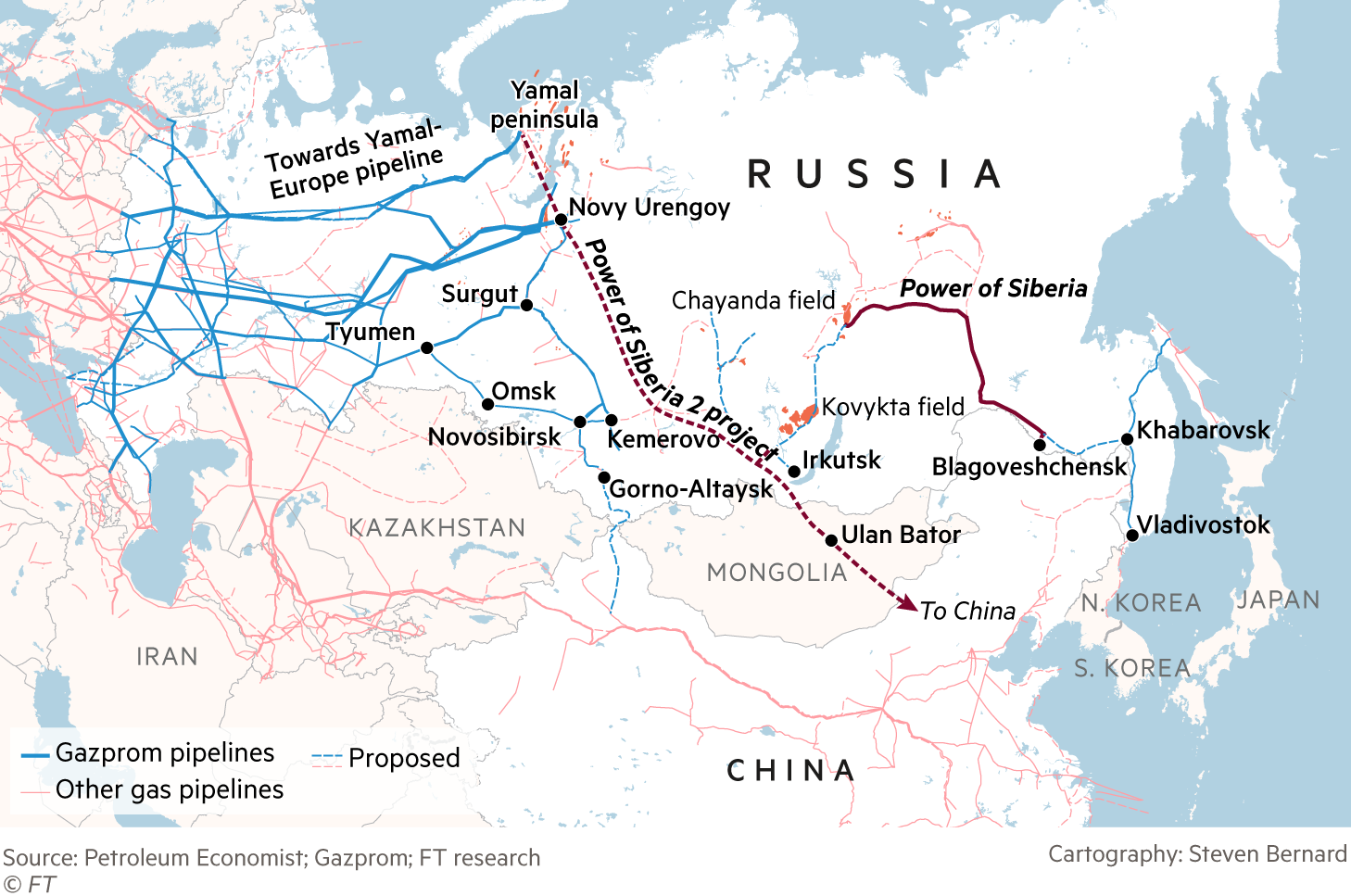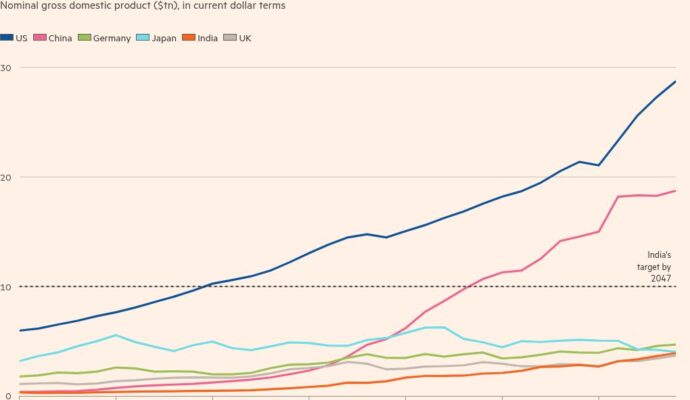Unlock the Editor’s Digest for free
Roula Khalaf, Editor of the FT, selects her favourite stories in this weekly newsletter.
China and Russia have signed an agreement to build the Power of Siberia 2 pipeline, a gas project that could reshape global energy flows as both countries seek to outline an alternative to Donald Trump’s US-led global order.
Russia announced the deal as President Vladimir Putin met with his Chinese counterpart Xi Jinping in Beijing on Tuesday. Russia’s pipeline gas monopoly Gazprom said the two sides had signed a legally binding “memorandum of construction” on the long-awaited pipeline.
However, the document covers general terms while lacking details on pricing, the main stumbling block in the negotiations for years. China did not immediately comment.
Even without clarity on costs, the deal to proceed with the 50bn cubic metre project signals a significant shift in the global gas market, with the potential to alter the economics of US exports by adding a source of cheap gas to the Asian market, and to strengthen Beijing’s bargaining power.
“Talks will now focus on financing the pipeline’s construction and the commercial terms of supply,” Gazprom’s chief executive Alexei Miller said on Tuesday in Beijing, according to state newswire Tass. He promised to “provide the commercial details” separately.
The agreement marks a significant shift in the market balance for suppliers of liquefied natural gas, particularly Qatar, Australia and the US.
“This is a very clear signal . . . suddenly we are removing 50 bcm [of demand] from the equation,” said Anne-Sophie Corbeau, a global research scholar at the Center on Global Energy Policy at Columbia University.
“For the people who want to take final investment decisions now, I would be a little concerned,” she said.
The trilateral talks also involved Khurelsukh Ukhnaa, president of Mongolia, which will be a transit point for the pipeline, said Russian state newswire Interfax.
Once completed, the pipeline would allow the transit of 50 bcm of gas a year from Russia through Mongolia, said Miller.
“If they start construction this year, next year, it will be online in the early 2030s,” said Corbeau. Supplies under the new agreement will run for 30 years.
After the meeting with the Russian and Mongolian presidents, Chinese state media quoted Xi as saying: “‘Hard connectivity’ should be a key direction, by actively promoting cross-border infrastructure and energy projects linking the three countries.”
Moscow and Beijing also signed “commercial agreements” to increase supplies through existing routes by 8 bcm, with the aim of bringing total annual flows to 56 bcm before the new pipeline was built, said Miller.
The commercial details of Power of Siberia 2 that are yet to be agreed will prove crucial for Russia as its energy revenues decline and Gazprom struggles to stay afloat.
The Russian announcement was “a bit premature”, said Victor Gao, chair of the China Energy Security Institute. “This may be more [a signal] of their intent, rather than an agreement already reached,” he added.
Alexander Gabuev, director of the Carnegie Russia Eurasia Center in Berlin and a China expert, said the expansion of the existing pipelines appeared to be “a real deal,” but that with the PS2 agreement, China was in effect signalling “yes, we’re interested, we accept the route through Mongolia — but let’s talk about price and terms”.
But he added: “A legally binding memorandum without a price or timeline is not a final agreement.”
Russia is already the largest supplier of pipeline gas and the third-largest provider of LNG to China after Australia and Qatar. The new pipeline would sharply increase China’s energy purchases from its neighbour and help compensate for Russia’s loss of markets in Europe after it invaded Ukraine.

Putin stressed that his “close communication” with Xi “reflects the strategic nature of Russian-Chinese ties, which are at an unprecedentedly high level”, Tass reported.
The Chinese and Russian leaders will observe a military procession on Wednesday commemorating the 80th anniversary of Japan’s defeat in the second world war.
The meeting with Putin is part of a week of extensive diplomacy for China’s President Xi, who is hosting a score of world leaders for the Shanghai Cooperation Organization security conference in Tianjin as he aims to present Beijing as a reliable alternative to the US-led global order.


